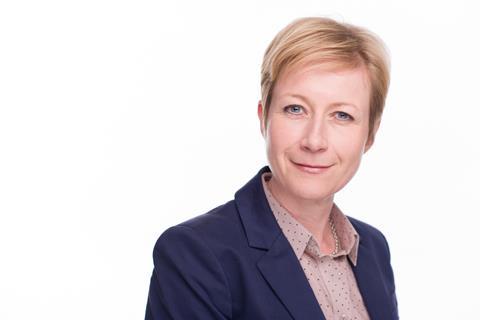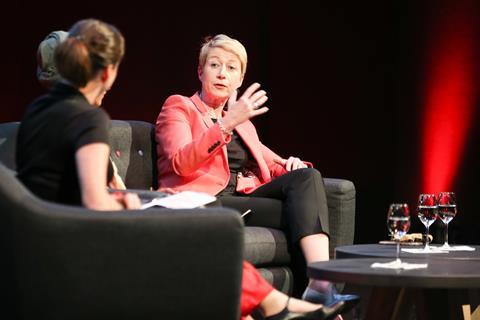Changing the culture of production companies and breaking up the “boys club network” should be a top priority according to Brave Bison boss Claire Hungate.
Brave Bison chief executive Claire Hungate has had enough of the disparity between the sexes in some parts of the media industry.

“I am bored of being the only woman in meetings and tired of women being in the minority,” says Hungate, who explains how men and women often take a different route into the industry. Her own career path is by no means typical.
Hungate trained as a barrister and moved into the BBC’s legal department before transferring into TV production.
She says that while women tend to go into production roles, men often opt for editorial positions, become researchers and then executive producers.
“That needs to be broken,” she says, pointing to the importance of role models and mentors.
“TV production in the UK particularly is somewhere women can look and see some strong role models.
“Women must kick back against these stereotypes and not think they need to follow because there are alternatives.”
Admitting the generalisation, Hungate explains the stereotype of a boardroom full of men talking about football is not far from reality:
“It’s an unconscious bias they don’t know they’re doing it but I hope that is changing,” she adds:
“The obligation is on the employer to ensure diversity of voices for the best management and interests of the company.”
Changing the status quo
She says: “There is a culture issue there, in a traditionally male dominated technology environment and a culture of men using very male language.”
Using a fair and transparent recruitment process will enable “organisations to ensure its business functions in a way that makes it accessible to everyone…. You don’t see enough women in senior creative roles.”
However she pointed to Jane Curtin, Carolyn McCall, Henriette Conrad and Alex Mahon as a few of the stand out role models in the industry for women to use as examples of excellence.
Overcoming the prejudices in production companies and the wider industry is something Hungate is passionate about. She says: “It is now time for businesses to be disrupted.”
A career that has spanned commercial content distribution operations to rolling out the mixed genre international factual formats including Who Do You Think You Are? and scripted hits such as New Tricks and Man on Wire, Hungate is no stranger to championing change.
As managing director of production company Wall to Wall she was part of the team that sold the company to AIM listed production Group Shed Media PLC in 2007 and subsequently became commercial director across all the Shed Group companies.
In 2010, she was part of the team that de-listed Shed from AIM by virtue of an MBO backed by Warner Bros and became chief executive of the newly created entity, Warner Bros TV Production UK.
Most recently Hungate became CEO of Brave Bison in 2017, a social video company that is the largest multi-channel network outside of North America and boasts over 2210 YouTube channels and last May was named the world’s third largest digital media publisher by Tubular Labs.
“Diversity of all kinds is absolutely essential both to the creative process and business process.”
Explaining the importance of opinions and perspectives, she says: “It is not good for a business to have too much agreement but you need dissenting voices to find the best solution and deal strategy and to get on board a selection of viewpoints with people from different backgrounds and experiences.
New pathways
“White, middle class and middle aged needs to be addressed,” Hungate says it must start from the culture of the company with employees buying into it.

“Women need to address this, mixed senior management team and board have to believe in the role you have as well as the benefits and flexibility you have from working hours and maternity leave, holiday and mental health support.”
The industry is seeing a “shifting sands” with lots of grey areas emerging from new platform entrants and business models.
She adds: “It is all about the content you produce and the way you curate and feed that content in [to the digital platforms] that starts to see audiences changing their behaviour.
“There are going to be massive shifts, Netflix front end can see huge movements around the tentpole shows but sitting behind that are shifting patterns with fan communities interested in horror or sci-fi or friends.”
With this comes great opportunity and the UK production market is going to have to find a new way of creating content, Hungate concludes.
“Quality is the best business model but now at the same time we have now more than ever consumer facing technology that is influencing how we watch content, when we watch content and what content we watch.”
Read more Interview: Carolina Costa



























No comments yet